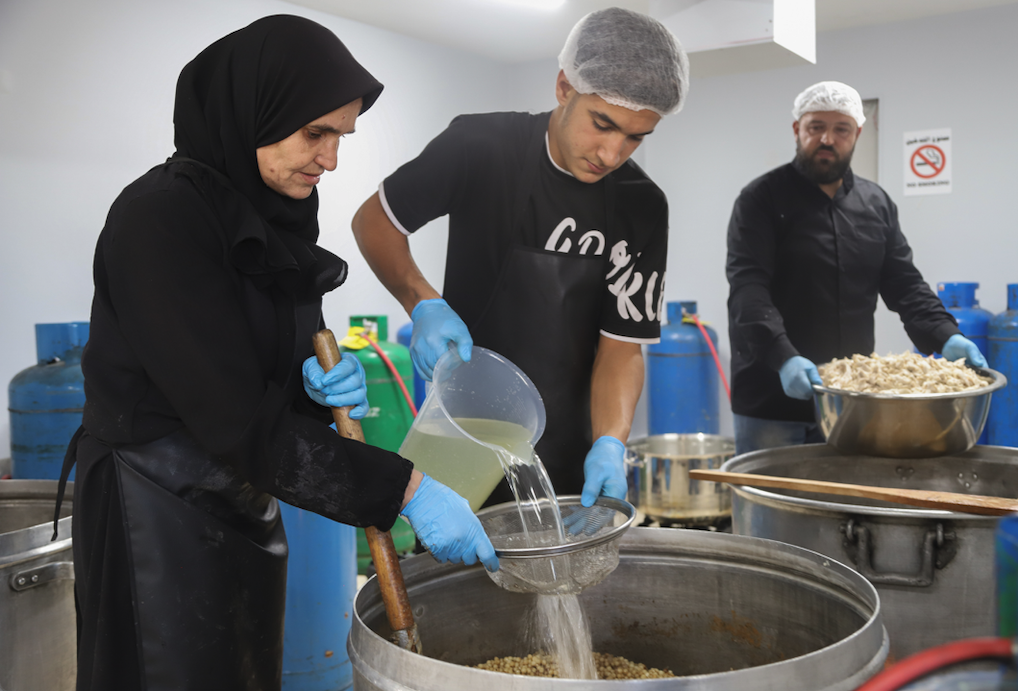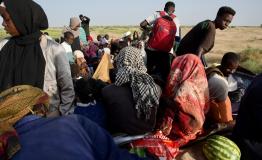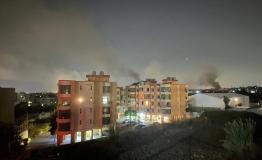As the war in Lebanon casts a shadow of devastation for millions of people across the country, community-led initiatives and local efforts are testament to the surviving solidarity and hope among Lebanese society.
In the heart of Beirut, one such initiative is providing a lifeline for people housed in the Al Azarieh building—once a bustling commercial centre, now a shelter for more than 2,500 people who have been displaced by Israeli bombardments and incursions.
Médecins Sans Frontières/Doctors Without Borders (MSF) is supporting the implementation of a kitchen project that is providing free meals for people here, launched by local NGO, Ahla Fawda, and restaurant, Barzakh.
“We started from scratch,” explains Khodor Al Akhdar, Barzakh’s operational manager. “Since the beginning of the war and the influx of displaced people [to this area], we have worked closely with Ahla Fawda to provide food. This project aims not only to provide meals but to also supply ingredients, while training the people living here in Al Azarieh to prepare and cook the meals themselves, with a focus on food safety and hygiene.”
To get the kitchen project running, the MSF logistics team transformed a previously vacant space in Al Azarieh into a fully operational kitchen, while Ahla Fawda and Barzakh equipped the facility to meet hygiene and safety standards, training local residents to prepare the meals themselves using the free ingredients provided. The kitchen now serves around 2,500 meals daily.
Since the beginning of the war, community-led initiatives have been impressive in Lebanon, encouraging these efforts fosters connections and a collaborative atmosphere that is much needed and ensures sustainable responses [to the war]Elena Fernandez Tajadura, MSF’s emergency logistics coordinator
Lebanon has faced a series of crises in recent years, including the devastating Beirut port blast in August 2020 and an economic collapse that ranks among the worst in the world. Israel’s recent escalation of attacks in the country, has displaced over a million people since October 2023, leaving many in precarious living conditions. Adding to the prolonged multi-crisis, it has pushed the entire population to the brink.
Initiatives such as the kitchen project in Al Azarieh represent practical methods of community-based care and survival for people, and offer a sense of hope and warmth.
“I am proud to be part of this kitchen,” shares Aziza, who was displaced from south Beirut and is now a resident of the Al Azarieh shelter. “Many people here have lost their jobs because of the war or have spent their last cents on essential needs over the past months. They have no money left to survive. When I learned [the kitchen] needed an extra hand, I volunteered. Together, we’re doing what we can to navigate this situation. Hopefully, if God wills it, this situation will soon end and things will improve.”
MSF has also supported other community-led initiatives (with a focus on food provision) across Lebanon, including in Saida and Tyre in the south of the country. Since the escalation of Israeli bombardments on 23 September 2024, MSF has provided a total of 7,432 meals, 7,342 blankets, 6,050 mattresses, 79,504 litres of drinking water, 8,013 hygiene kits, and 6,678,000 liters of water supplied to shelters across Lebanon.



